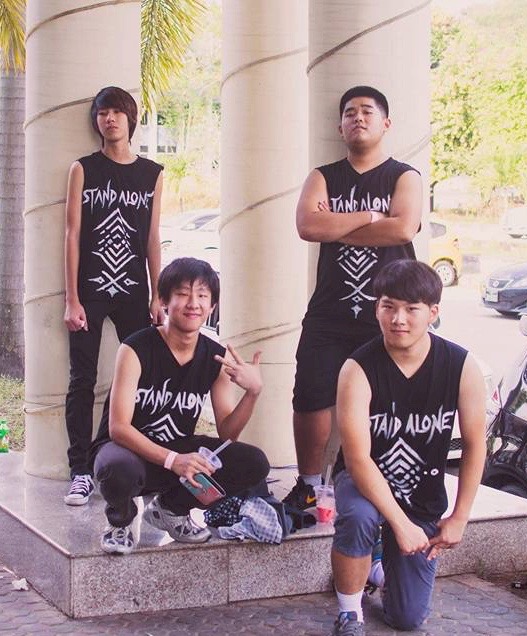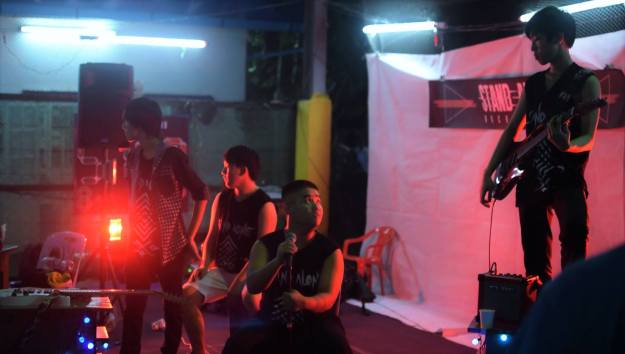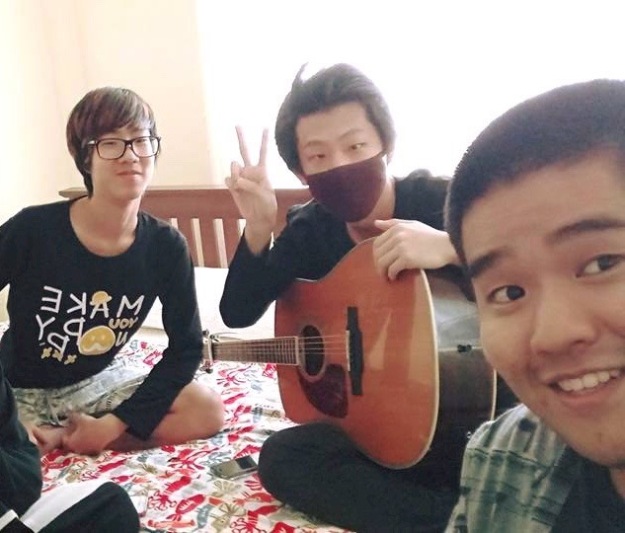For fifteen years I taught military brats on overseas installations for the Department of Defense Education Activity (DoDEA). It was the greatest honor of my life to teach the sons and daughters of the courageous men and women who make up the United States Armed Forces.
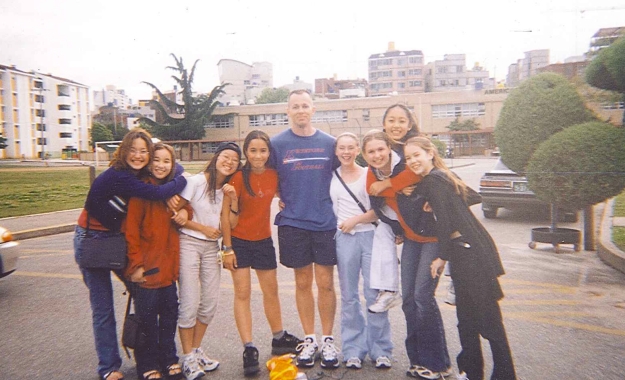
My duty station on Nine-Eleven was in South Korea.
The first wave of heroes in the aftermath of Nine-Eleven was brave men and women in New York, Washington, D.C. and Pennsylvania. Office workers who refused to leave colleagues behind as they evacuated the burning towers. Police officers and firemen who must have known that rushing into those buildings and climbing those stairs meant a certain death – and they never hesitated.
The people on the streets of Lower Manhattan, in the debris, rendering aid to strangers – this after having seen two planes crash, and not knowing if other planes were on the way. A mayor who went to Ground Zero with a bullhorn, in harm’s way but leading in a crisis. The news personnel that documented the tragedy but did so with humanity.
The first wave continued – flight attendants and passengers who fought back, and soldiers and civilians who never hesitated to enter the burning wreckage of the Pentagon to reach the injured and dying.
The first wave was the men and women who went to Wall Street to reopen the Stock Exchange. It was the teachers who welcomed students back to school when smoke from Ground Zero could still be seen from classroom windows. It was the people who stood in line to give blood. It was the medical personnel – doctors, nurses, paramedics, mental health professionals – who were the first responders on that Tuesday in September, and it was the ones who in the days that followed worked tirelessly around the clock in hospitals, parking lots, on the streets.
It was the single mom store clerk in Times Square who might have been afraid but she went back to work anyway. The transit workers who got a city moving again. The rescue and construction crews that breathed contaminated air and would forever suffer physically and emotionally from digging through the wreckage, looking for survivors, recovering remains of the people we lost, cleaning up the debris, and rebuilding.

It was the airline industry and its employees that held their own grievous loss in check so that they might fly again – not just for commerce and free markets, but so a way of life could get back on its feet and give the finger to a group of radical terrorists.
It was the guardsmen and women called to duty from states all across our great country – the weekend warriors had a mission unprecedented in our nation’s history, and they committed to doing their part, and doing it well.
It was normal, everyday Americans, from all walks of life, doing what they could, where they were, no matter how big or small.
It was our military. Courageous men and women who would fight and die for an idea – that life, liberty and the ability to passionately chase our dreams still matter.
They were the first wave of heroes.
The 9/11 terrorist attacks were a national tragedy for America, but for the men, women and children who lost family and friends on that day it was incredibly personal. We really had no choice, though. We had to stand back up. We would grieve, but we’d do so on our feet and moving forward.
In Korea, our soldiers began deploying. People think first about Afghanistan and Iraq – but in reality the first battles in the war against radical Islam were fought with training exercises in the Philippines, Japan, Thailand, Indonesia and countless other places across South and East Asia, Central Asia, Africa and the Middle East.
The result?
Only a few days after Nine-Eleven and already our military exchanges and commissaries were virtual ghost towns – as for the military spouses who’d brought their families to serve in a foreign country for a two or three year deployment, well, suddenly they were single parents.
It’s hard enough to do a tour in Korea away from all your family and friends – but can you imagine a twenty-something spouse overseas for the first time and with a kid in kindergarten and suddenly her husband is gone for who knows how long?
Alone at night I imagine most of those kids and newly single parents were afraid. It wasn’t just being stranded alone in a foreign country – it was not knowing if mom or dad would make it back from their deployments.
But the military spouses stayed in Korea with their military brat kids even as their dads and moms left for war zones in the most hellish places on earth. They didn’t run to the airport and fly back to the states. And here’s why: they understood every decision they made would have real and far-reaching consequences.
They stayed.
They came to school with brave faces – spouses and kids – and they were resilient in the midst of a crisis unlike any our country had faced since Pearl Harbor.
I had a student, Sami, who shouted with pure joy when she broke her arm in a car accident.
The reason?
“They’re sending my daddy home!” she cried.
She was eleven years old at the time. That’s what Nine-Eleven did to our military brats.
For a long time Sami and I lost track of one another. But recently we’ve reconnected. Now she’s in her twenties and we talk a lot by email. She told me about the first time her dad went to Afghanistan, and the first time he went to Iraq, and about the time he began hanging pictures of soldiers on the wall in his study back in Florida. They were men and women, black and white and Asian and Hispanic – but Sami’s father didn’t see race or gender. They were soldiers, all dead, all heroes, and all personally known to Sami’s father.
Sami told me about the fifth and ninth and eleventh times her dad went to Afghanistan. Not full deployments – he was a leader, who frequently had to go to hellish places – but bad enough. And she told me how after his eleventh trip to Afghanistan he had come home and hung another picture on the wall.
The seventeenth.
It was too much for Sami’s mom, because she knew the seventeenth wouldn’t be the last. When Sami’s dad came home from Afghanistan for the twelfth time, the only things left in his house were the pictures on the wall.
Sami and her mom had left.
That’s what Nine-Eleven did to our military families.
But it’s not where this story ends.
There is a second wave of heroes.
They came much later – but they’re the ones I want to tell you about today, fifteen years after that Tuesday in September.
I had a student whose father died in Afghanistan. Today she is a soldier.
I was athletic director at a DOD school in Korea. No fewer than seven of my student-athletes would later serve in Afghanistan.

Laura Bush visited our installation to speak to the troops in Germany … and one of the men that made up her protection detail was my former student from a DOD school.


Two of the most outstanding nurses who serve at Landstuhl Regional Medical Center in Germany – the place that saves the lives of countless wounded warriors – once sat in my eighth grade history classroom.
I am named for my uncle who died heroically in Vietnam. One day I got an email from a former student at my DOD school in Germany. She was in Washington D.C. and had made a paper engraving of my uncle’s name on the Vietnam Memorial. She sent me the picture by email with a simple message: “I wanted to honor your family and your name.”

Her own father had flown countless missions in support of Enduring Freedom and Iraqi Freedom. Her own family had been uprooted countless times. You would need a map of the world and a carton of pushpins to track the places she’d gone to school as she, her mom, brother and sister served alongside her military dad.
It goes on and on. I could cite another fifty examples.
I don’t need to. Here’s the point: the military brats that came of age in the aftermath of Nine-Eleven have become our best, brightest, and bravest.
They are the second wave of heroes.
For the brats who know me, that once sat in my classroom – I feel so privileged and blessed to know you. Thank you for your perseverance, resilience, and service. I follow you guys online and see what you’re doing in life, and I am overwhelmed with pride.
I have one last message on this day for remembrance.
Winston Churchill once said, “Courage is rightly esteemed the first of human qualities, because it is the quality which guarantees all others.”
I’d like to add a corollary: “Arrogance as a human quality doesn’t make you right, it only reveals you for the ass you really are.”
I think arrogant people are the worst.
It’s strong to use the word hate, but I won’t shy away from it today: I hate arrogance in all its forms, and I have no use for and refuse to associate with people whose character is arrogant.
I used to be close to someone who has an arrogance problem. I honestly believe his goal in life is to be a narcissist. The only problem is he lacks the mental acumen to achieve such a lofty goal. That doesn’t stop him from trying though. No matter the conversation he has an opinion that will differ from everyone else’s – and even on the rare occasions when you can irrefutably prove that he’s wrong or has made a mistake, his lack of any meaningful character traits compels him to rationalize the situation.
Not too long ago he accused me of not sharing anything important with him in years.
My god, but he’s slow. It’s been longer than that. And why would I share anything important with someone who values nothing aside from his own inflated sense of importance?
Arrogant people are the worst.
And now we see it with our National Anthem.
Here’s what I know: I am not in the United States as I write this. I’m in a Third World hellhole where eighty percent of school-aged kids have no opportunities to attend school. If you are gay, you will likely be arrested. If you are female, your career opportunities are to strip, hook, give massages, or some combination of those three – unless of course you win the lottery, which would be to marry a seventy-year-old divorced westerner with money so you can get the hell out of your own country as fast as you can.
I found out from someone I met on my travels recently that at least one Central Asian country instructs its doctors to implant women with devices to prevent pregnancy against their wishes and often even without their knowledge.
I recently visited a school where all the students had textbooks written in Russian. The school was in Vietnam – and no, none of the staff or students could read or write or understand anything from the books. But it’s all they had, so they showed up anyway and studied the pictures.
In Laos the men all want to be police officers so they can get a gun and legally steal from their peasant neighbors. In Laos the women all want to be flight attendants so they can get the hell out of Laos.
In Laos, Vietnam, Cambodia, and Indonesia the public school teachers tell parents “give me money if you want me to teach your kid” and that’s the best opportunity that the small minority of students who get to go to school will ever get.
I delivered school supplies with an NGO to an orphanage in Indonesia. An orphan girl sat alone, off to the side. I walked to her and asked, “What’s your name?”
“AIDS,” she replied.
“What do you mean?”
“I have to tell everyone that visits. I sit alone because I have AIDS.”
I shrugged. “I’ll sit with you.”
The girl gave me a timid smile, and said, “No one will hold my hand or hug me. No one will kiss me or give me candy.”
All around us the NGO workers were freely giving hugs and kisses and candy to the other orphans. But this girl wasn’t the fault of the NGO workers – they were merely following the instructions from the people who ran the orphanage.
I held out my hand. “Let’s take a walk.”
“Really?”
I nodded. For a few minutes we walked hand-in-hand. And when it was time to go, I gave her a hug and kissed her forehead.
“No one has ever kissed me before,” she cried.
I thought, I know, and I’m sorry.
The girl was eight years old.
I didn’t say anything else. I just left.
And you know what? All those countries have national anthems, too. The governments are rife with corruption, the people live in extreme poverty, and the ability to improve your life is nearly non-existent.
But in America, we have second-rate, second-string, soon-to-be has been never-to-be-heard-from-again football players who think it’s okay to not stand for our National Anthem.
Such arrogance.
Do you really believe our National Anthem has no more value than the hellholes that still exist on this earth?
A last story:
I had a parent conference with a military family in Germany. The kid was black, and had been abandoned by his biological father at an early age. Now his single mom was serving her country on a military installation for three years in Germany.
The teenage boy rarely did his work. He made excuses every day. He was a behavior problem.
And then on conference day the single mom showed up with a woman at her side that I’d never seen before – and in the category of “didn’t see this coming” she introduced this woman as her life partner.
You know what happened?
This black, female, gay sergeant in the United States Air Force told me: “My son likes to blame his father. He likes to blame my gayness. He likes to blame white people. He likes to blame the military for forcing me to live my life in secret. My son is wrong. He is an irresponsible teenager who has treated you poorly and I apologize for his actions. I have raised him better than this, and with your support I will work even harder to see that he matures into a God-fearing man with strong moral convictions.”
Here’s a truth people need to understand: for all the problems that do in fact exist in America, we are the one freaking place on earth where that sergeant and her son have the God-given opportunities to dream and work hard and live free and achieve greatness.
The orphan with AIDS?
I felt good about myself when I visited her. But her life, in all its shortness, is still hopeless. If only she’d been born in America. You see that, right?
What do these arrogant athletes think they are doing?
Go ahead and give a million dollars to a few charities.
Then go online and Google “Brad Pitt and Jennifer Aniston enter the Palestine debate.” In 2004 they were going to achieve peace in the Middle East because “we’re celebrities and damn it we’re important” – but yeah, that worked out real well.
So take a knee during the National Anthem before a football game.
If you are arrogant enough to believe that is what’s needed to “start a conversation” or “bring real change” then you and the arrogant wanna-be-narcissist I used to be close with can start your own club for people who are never going to be relevant.
If you want to help fix the problems we have in America, then be courageous in a meaningful way – go into our schools and implore our impressionable kids to be men and women of character and morals. Lead them by example. Respect the people who made your life possible. Respect the flag. Respect the anthem my uncle died for, my father fought for, and my students like Sami suffered for.
Your arrogance does not make you courageous, relevant or right. It only reveals you as an ass.
But for the military brats who became the second post-Nine Eleven wave of heroes … you are real, and courageous, and everything that is right and honorable about our country. As we commemorate Nine-Eleven fifteen years later, thank you to all the military brats who served our country alongside your military parents.
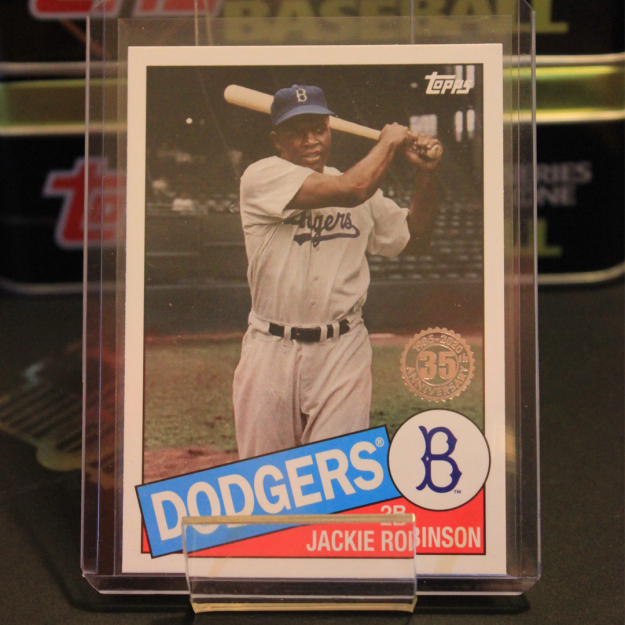

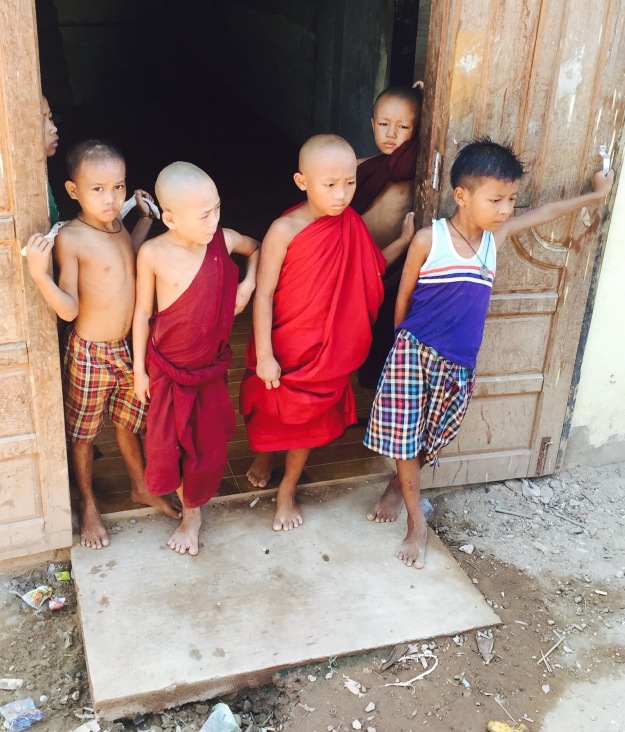 Its borders have essentially been closed to foreigners for decades—and in that shroud of secrecy a military government with child soldiers to do its bidding stripped its citizens of their basic human rights and dignity. A lot of nasty stuff went on in Myanmar. But that’s not the whole picture, and for sure it’s not what I want to write about. In the last five years, elections have been held, borders have opened, and the military government has ceded most of its power. Economic sanctions have been lifted and for the first time in fifty years the people in Myanmar are optimistic about the future.
Its borders have essentially been closed to foreigners for decades—and in that shroud of secrecy a military government with child soldiers to do its bidding stripped its citizens of their basic human rights and dignity. A lot of nasty stuff went on in Myanmar. But that’s not the whole picture, and for sure it’s not what I want to write about. In the last five years, elections have been held, borders have opened, and the military government has ceded most of its power. Economic sanctions have been lifted and for the first time in fifty years the people in Myanmar are optimistic about the future.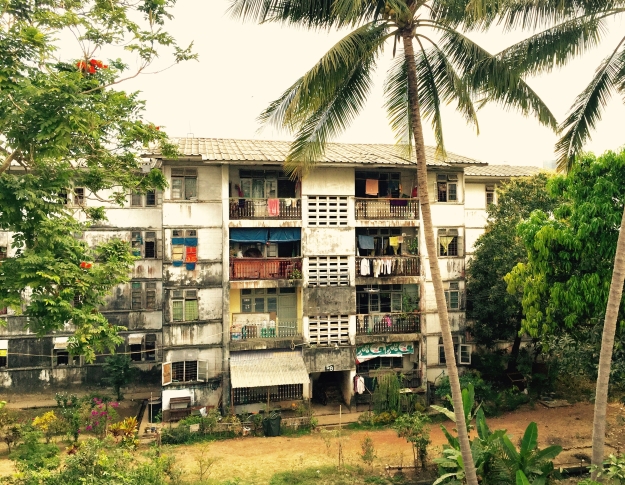 As a point of fact Myanmar might be hot, dirty, poor and corrupt (though far less now than it was five years ago)—but that isn’t how I would describe its people. Not after being amongst them. They are kind, compassionate, and beautiful—and they are filled with passion and hunger for everything the past generations of Myanmar people were denied.
As a point of fact Myanmar might be hot, dirty, poor and corrupt (though far less now than it was five years ago)—but that isn’t how I would describe its people. Not after being amongst them. They are kind, compassionate, and beautiful—and they are filled with passion and hunger for everything the past generations of Myanmar people were denied.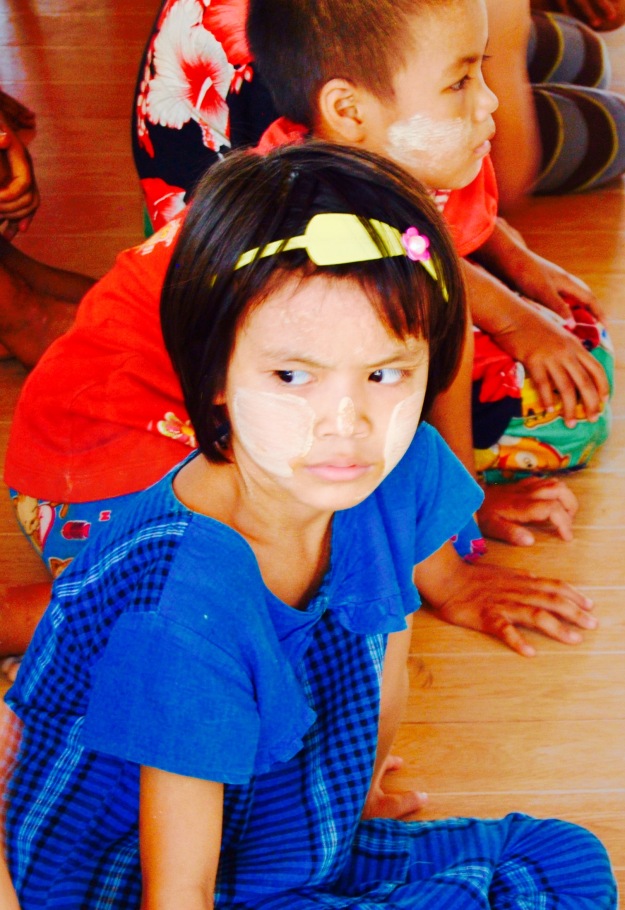 Among the many friends I made during my time visiting Myanmar are the guys that make up the indie rock band Stand Alone. They are Jun Ho, Zin Yu, Max and Young Woo. They live in Yangon but dream of touring the world. I did a pseudo-interview with them because we’re starting a
Among the many friends I made during my time visiting Myanmar are the guys that make up the indie rock band Stand Alone. They are Jun Ho, Zin Yu, Max and Young Woo. They live in Yangon but dream of touring the world. I did a pseudo-interview with them because we’re starting a 